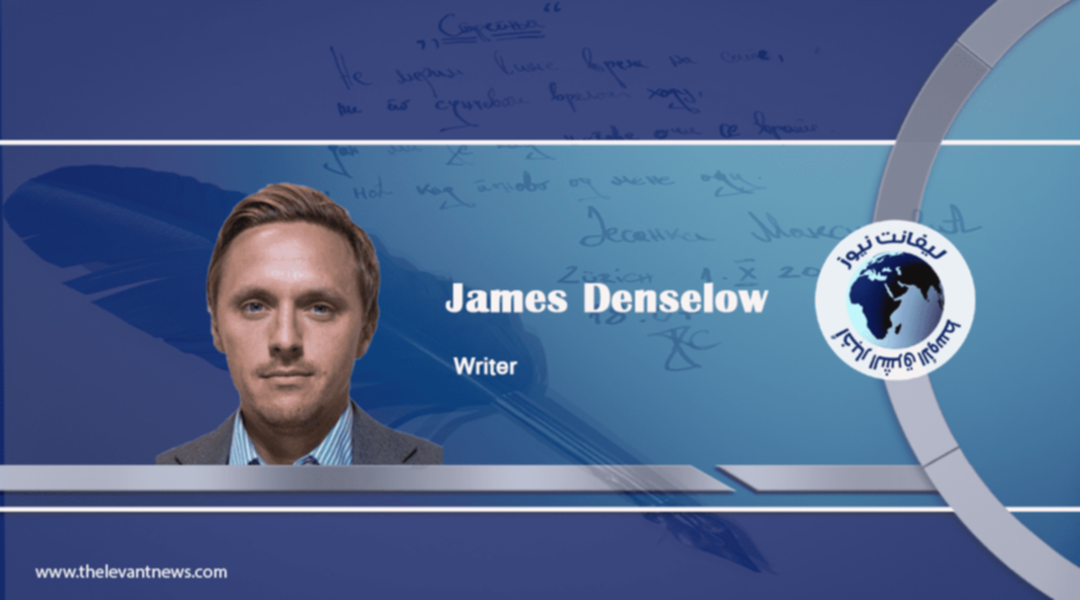-
The EU's Syria Fatigue

Syria, after ten years of tortuous conflict, is safe. That is if you listen to the Danish Government who to the fury of many has suggested that Syrian refugees within its borders should return home. Around 500 Syrians have been thrust into a position of uncertainty and fear as Denmark prepares to cancel temporary residence permits
Around 32,000 Syrian refugees have settled in Denmark since 2011 and despite the country not formally recognising the Assad Regime in Damascus it has states that “the general security situation in the area in and around Damascus has improved to such an extent that the need for protection for persons who are not individually persecuted … has ceased to exist.” Yet without official diplomatic relations with Syria Denmark cannot forcefully repatriate people if they refuse to leave voluntarily.
The fact that Denmark has a left of centre Government has surprised observers further, yet this decision is simply the latest in a spectrum of increasing apathy that has clouded the Syria issue. A decade on from the start of events and the security of President Assad in power, backed by a deep and seemingly committed alliance of Russia and Iran, is seemingly guaranteed. The Syrian leader can look forward to the confirmation of another ‘election’ and can also be thankful to have recovered from Covid too.
Meanwhile European countries are peripheral to events in the country more than ever before. The politics of peace in the country have moved on from the Geneva processes to a Russian-led Astana one. The mismatch between humanitarian needs and resources is greater than ever. The winding up of large-scale anti-ISIS operations means that their primary concern is around the future status of Syria’s refugee population in the region and of course in their own neighbourhood.
The routes from the Middle East to Europe for Syrian refugees have been effectively closed for some time now. Syria’s borders are essentially shut to large scale movement and the regional restrictions on movement means that potentially deadly trips by sea are the only feasible way of reaching a place of greater safety. Europe’s reticence as to receiving more refugees has only been exacerbated by the Covid pandemic which has altered the risks around people moving across borders like never before.
Despite the fact that over 80% of Syria’s refugees are being hosted by the country’s neighbours, Europe is failing Syrians doubly over by enacting such tough restrictions against their wider movement into Europe as well as not supporting the neighbours well enough to ensure that Syrians and the host community they live amongst are looked after.
Syria is seen as too intractable, too complex and with levels of investment from Europe’s opponents that are too high to effectively counter. Europe’s publics see a conflict with no good guys and as their own economies struggle with Covid and pre-existing pressures on their public services, are less supportive of spending resource abroad. There is apparently no political benefits for prioritising Syria but there are plenty of downsides.
As the situation in Denmark demonstrates, even Governments of political persuasions more traditionally sympathetic to humanitarian concerns are moving in decidedly negative directions on the Syria front.
Syria needs to have a strategic reboot across Europe with the EU perhaps best placed to lead efforts to realise that a piecemeal and negative by default approach doesn’t bring much to the table. A recent report by the EU's Malta-based European Asylum Support Office (Easo) said forced conscription was among the top reasons for Syrians not to return. This narrative needs to be given greater prominence and the European public should be given the opportunity to get on board to a campaign that doesn’t push for Syrians to be returned to become cannon fodder.
An EU 2.0 position on Syria requires a narrower approach that is more sensitive to what the EU can and can’t do as well as to what it should and shouldn’t do, on moral, legal and strategic grounds. Rather than putting its hands on its ears and pretending that the conflict is no more, nor any concern of the EU and recalibration is needed to bring sensible thinking to some of the most difficult questions that continue to swirl around the conflict. Without this the apathy will metastasise into a more negative drift and examples like what’s happening in Denmark could become the ‘new normal’.
by: James Denselow

You May Also Like
Popular Posts
Caricature
BENEFIT Sponsors BuildHer...
- April 23, 2025
BENEFIT, the Kingdom’s innovator and leading company in Fintech and electronic financial transactions service, has sponsored the BuildHer CityHack 2025 Hackathon, a two-day event spearheaded by the College of Engineering and Technology at the Royal University for Women (RUW).
Aimed at secondary school students, the event brought together a distinguished group of academic professionals and technology experts to mentor and inspire young participants.
More than 100 high school students from across the Kingdom of Bahrain took part in the hackathon, which featured an intensive programme of training workshops and hands-on sessions. These activities were tailored to enhance participants’ critical thinking, collaborative problem-solving, and team-building capabilities, while also encouraging the development of practical and sustainable solutions to contemporary challenges using modern technological tools.
BENEFIT’s Chief Executive Mr. Abdulwahed AlJanahi, commented: “Our support for this educational hackathon reflects our long-term strategic vision to nurture the talents of emerging national youth and empower the next generation of accomplished female leaders in technology. By fostering creativity and innovation, we aim to contribute meaningfully to Bahrain’s comprehensive development goals and align with the aspirations outlined in the Kingdom’s Vision 2030—an ambition in which BENEFIT plays a central role.”
Professor Riyadh Yousif Hamzah, President of the Royal University for Women, commented: “This initiative reflects our commitment to advancing women in STEM fields. We're cultivating a generation of creative, solution-driven female leaders who will drive national development. Our partnership with BENEFIT exemplifies the powerful synergy between academia and private sector in supporting educational innovation.”
Hanan Abdulla Hasan, Senior Manager, PR & Communication at BENEFIT, said: “We are honoured to collaborate with RUW in supporting this remarkable technology-focused event. It highlights our commitment to social responsibility, and our ongoing efforts to enhance the digital and innovation capabilities of young Bahraini women and foster their ability to harness technological tools in the service of a smarter, more sustainable future.”
For his part, Dr. Humam ElAgha, Acting Dean of the College of Engineering and Technology at the University, said: “BuildHer CityHack 2025 embodies our hands-on approach to education. By tackling real-world problems through creative thinking and sustainable solutions, we're preparing women to thrive in the knowledge economy – a cornerstone of the University's vision.”
opinion
Report
ads
Newsletter
Subscribe to our mailing list to get the new updates!






















